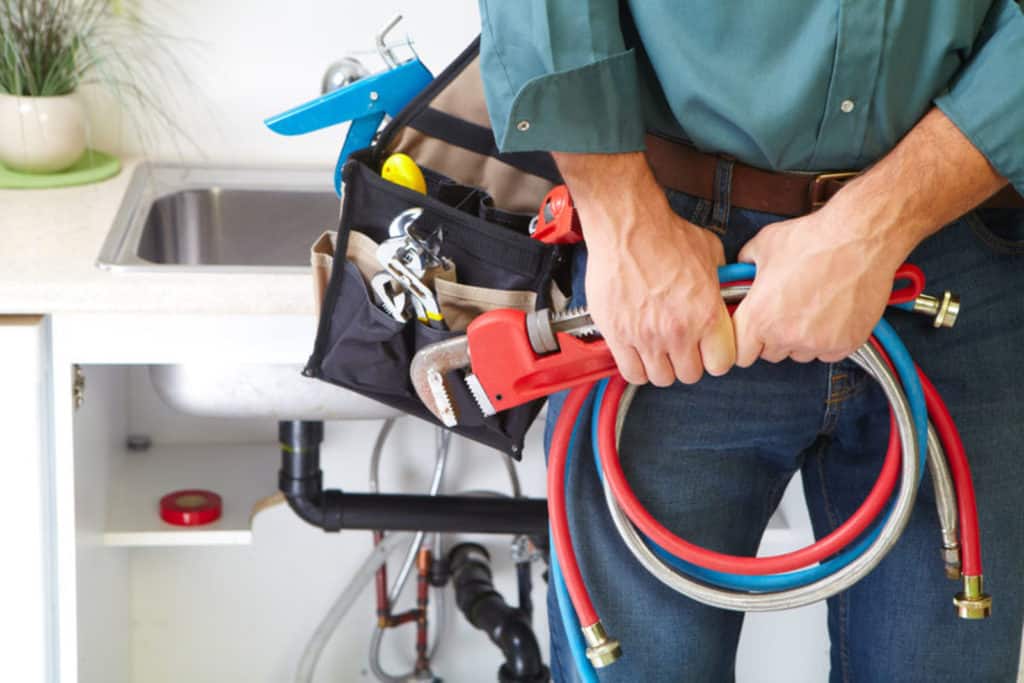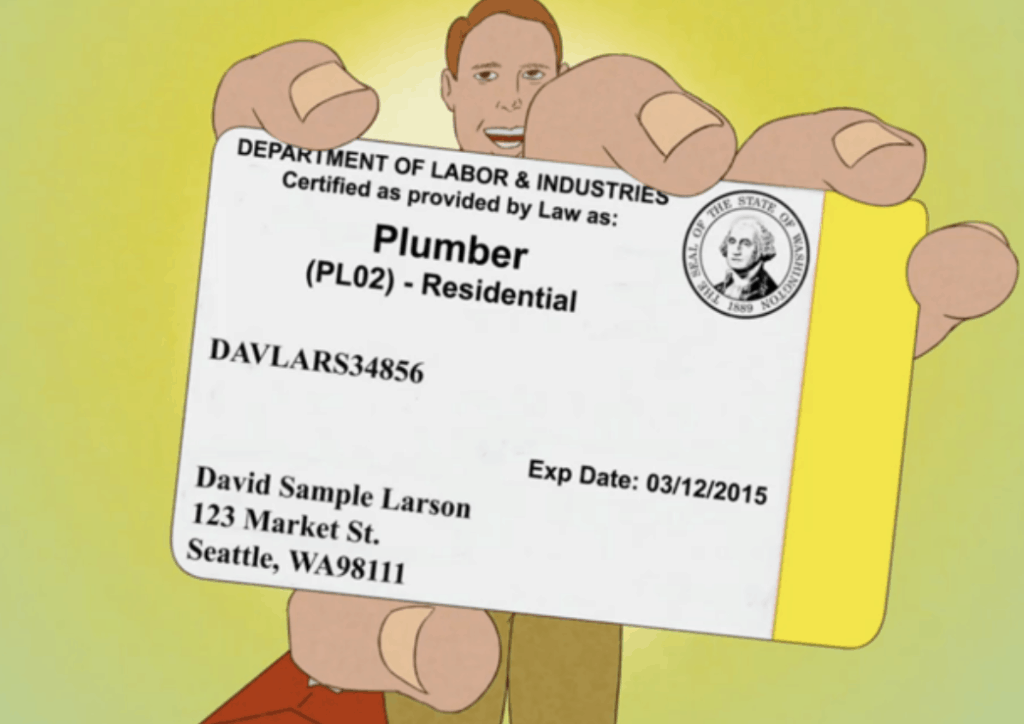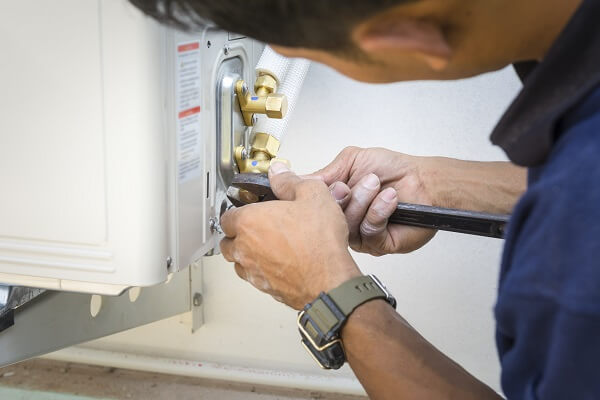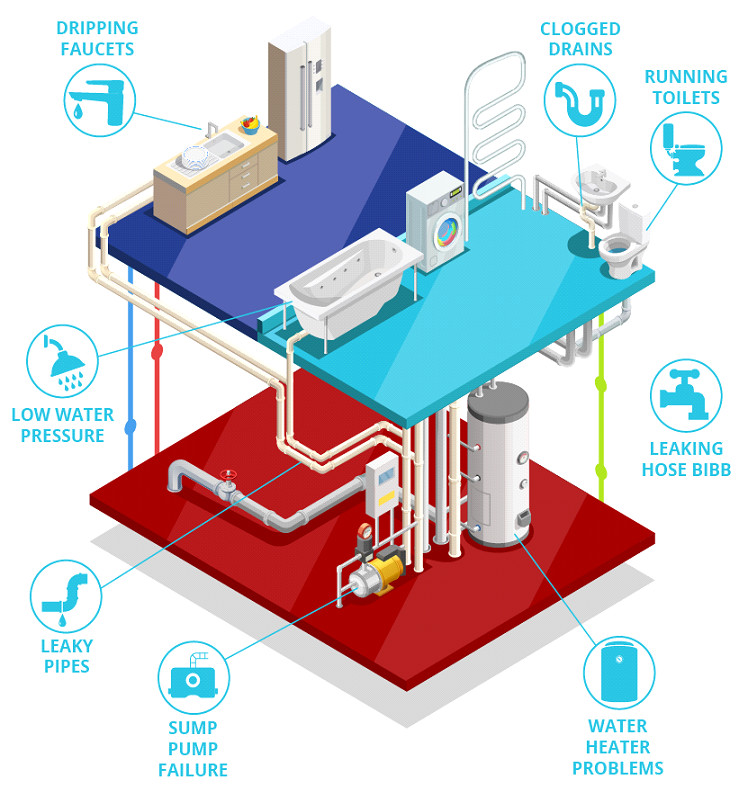Why Use a Licensed Plumber?

Learning how to find out if a plumber is licensed is an important skill. Plumbing issues may come up very suddenly. It can be a race to get the problem fixed as soon as possible. Checking to see if your plumber is licensed may not cross your mind during an emergency. Professional plumbers are licensed and certified. They have completed all the necessary apprenticeships and schooling. You know that they will perform quality work. Having a licensed plumber perform the job minimizes the risk of mistakes made on the job. When searching for a plumber, make sure that they are licensed and certified.
Learning how to find out if a plumber is licensed is important because your plumber should be well-educated. To receive a license, a plumber must complete all of the necessary schoolings. This schooling includes obtaining a GED then participating in an apprenticeship program for 2-5 years. Plumbers are informed about state laws and building codes during their education. The ability to pull required permits for jobs is granted during this time. Receiving a license provides a plumber with all the knowledge to complete a quality job.
Another requirement of a plumbing license is carrying insurance. Water damage can cause major issues in your home. Although plumbers are expected to fix these issues, mistakes can be made. If your plumber does not hold insurance, you may be the one paying the bills. Choosing to hire an unlicensed plumber also puts you at risk for paying the medical bills of anyone injured on the job. Unlicensed plumbers are even more likely to make mistakes. Minimize the risk of mistakes being made and a soaring bill by hiring a licensed and certified plumber.
Searching for a License

You can start your licensure inquiry by checking your plumber’s website. Their website should list their qualifications, certifications, training, credentials, and licensure status. The website can also provide information about your plumber’s services, past projects, and reviews.
Even if a perusal of your plumber’s website looks promising, you should still check their licensure status. Begin by requesting evidence of licensure from your plumber. Qualified plumbers will happily provide you with evidence of their licensure and insurance. You can then use the information provided by your plumber to verify the status of their license.
There are three types of information you can use to verify a plumber’s license.
- The plumber’s full name
- The plumbing company’s name
- The number that appears on the license
Each state has different requirements and licensing organizations. Your local licensing department can verify if a plumber is licensed to work in your community. Your state’s Department of Labor can also provide this information. You can also request proof of liability insurance from your plumber. Then verify the plumber’s license with their insurance company.
Licenses can be granted to both contractors and individuals. A licensed contractor must verify that work performed by employees meets all code requirements. If your contractor is licensed, but employees perform the work, you might want to check the licensure of the employees performing the work as well. When viewing a license, verify that the name on the license matches the name of the person presenting it to you.
Other resources for inquiring into the licensure, qualifications, and competency of your plumber include the Better Business Bureau, Angie’s List, local review sites, and personal referrals. Don’t be afraid to request information from your plumber on people who can vouch for the quality of their work.
How to Spot an Unlicensed Plumber

Listen to your gut! If you have a feeling that this plumber is not reputable, do not hire them. Look for customer reviews to get a better understanding of who you are hiring and what their past work looks like. Customers give the most honest take on what a company and its employees are like. Make sure to look for consistency within the reviews. Do your research and trust your judgment. Here are some potential red flags to look for when hiring a plumber.
- They ask you to purchase the supplies
- They do not provide you with a receipt
- They only accept cash payments
- You cannot find proof of their license on the above links
- Vagueness when discussing the price of the job
- Vagueness when discussing the finish date of the project
- Service vehicles that do not match the company that you hired
If you find yourself dealing with an unlicensed plumber, report the contractor. In doing this, you are saving another customer from the financial and safety hazards that come with faulty plumbing. The organization you should report an unlicensed contractor to vary from state to state.
Licensed contractors work hard to perform their trade well. It takes years of schooling and dedication to become a licensed plumber. Do not put your property at risk by hiring an unlicensed contractor. While they may offer substantial discounts or other incentives, the risk is much greater than the reward. Licensed contractors are working to protect the integrity of the skilled trades and perform quality jobs.
Advocate for Licensing
PHCEid.org is an advocate for the Plumbing, Heating, Cooling and Electrical contractor to properly identify their licensed status for public awareness. Professional Contractors have the license or certification to work in homes and businesses. Without the proper certification and licensing to become a skilled trades professional, it compromises the integrity the trade industry.







